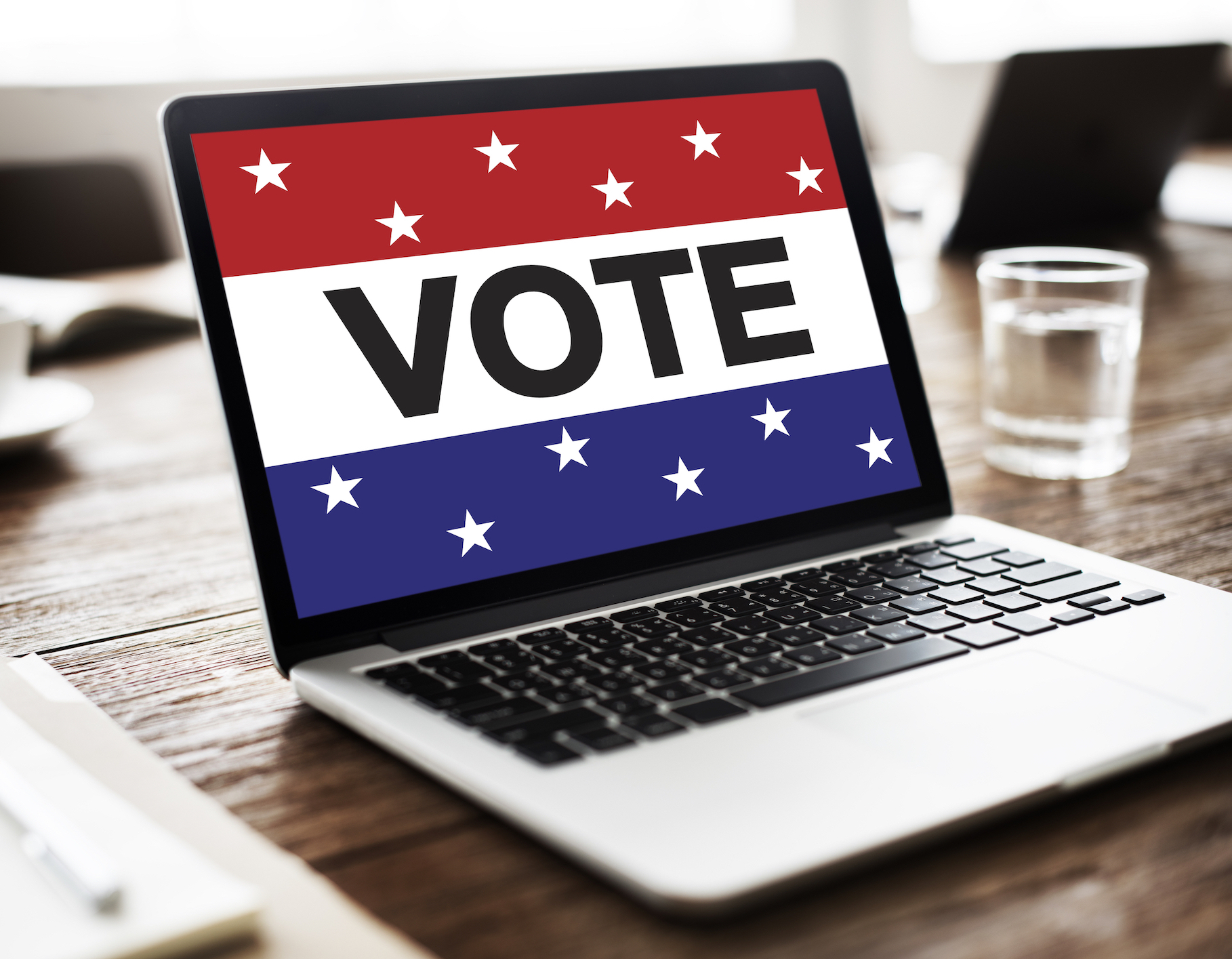Voters across the country are preparing to cast their ballot for the all-important 2020 U.S. presidential elections. Whether you’re a new voter eager for your voice to be heard or a parent looking to guide your family members on exercising their right to vote, consumers can be certain about one thing: election security should be top-of-mind for everyone as Election Day creeps closer. In addition to researching the presidential candidates and deciding who to support, consumers should also educate themselves on how to vote safely and securely.
Heads Up, First-Time Voters
As a young or first-time voter, you are probably eager to have your voice finally heard. However, you should also be on high alert for digital disinformation campaigns. These scams seek to suppress or disrupt the voting process by setting up bogus websites with official-sounding domains and related email addresses. From there, hackers could use those bogus email addresses to send mass email blasts intended to feed unsuspecting voter email recipients false information on when, where, and how to vote.
According to recent McAfee survey results, the majority of election administration websites for “tossup” states lacked the official U.S. government .GOV website validation and HTTPS website security measures, which prevent hackers from launching fake websites disguised as legitimate county government sites. It is critical that before Americans cast that incredibly important ballot, they confirm the site they are visiting is a .GOV website and that HTTPS security protection is in place.
Help Protect Your Family’s Vote
Whether it’s who you’re voting for or what you think of party policy, it’s incredibly important that every voice is heard in 2020. As people across the country make their decision, you must discuss the implications of digital disinformation and illegitimate voting websites with your family. Failing to discuss these attacks with new or young voters could mean the difference between whether or not their voice is heard in the 2020 election. Consumers must take action to ensure they are staying informed on possible hacks like this and sharing it with their loved ones to ensure no voices are left unheard this year.
Whether it’s your first or fifteenth time heading to the polls, we must all take action to ensure we’re staying informed on possible hacks, minimizing risk and not leaving this vote to chance. As you or your loved ones prepare to cast your ballots, consider these tips to help ensure that your vote is protected:
Look out for suspicious emails
Carefully scrutinize all election-related emails. An attacker seeking to misinform consumers can use phishing techniques to accomplish their objective. Beware of election emails from non-.gov addresses such as .com, .net, .org, or .us, particularly any emails sent in the final days before Election Day.
Question conflicting instructions
Question any voting instructions that appear to conflict with other guidance you’ve received from traditional sources such as the U.S. Postal Service, the primary channel state and local governments use to send out voting information.
Refer to your official State website
When in doubt, visit your state’s elections website to receive general election information on voter registration and contact information for your county’s election officials. Contact the local county officials to confirm any election instructions you receive via email, social media, or websites leading up to Election Day. Voters can find the official state election websites here.
Confirm local instructions locally
Call your county or city government officials directly to confirm any last-minute voting instruction changes to the regional or local Election Day procedures.
Ask for .gov and https on websites
Ask your county officials to use .gov validation and https protection on any government websites involved in elections. The .gov in a website name validates that the U.S. government has certified that the website truly belongs to the government entity it claims. The https indicates that any information you with the government website cannot be stolen and that voters cannot be redirected to fake government sites.
Stay Updated
To stay updated on all things McAfee and on top of the latest consumer and mobile security threats, follow @McAfee_Home on Twitter, listen to our podcast Hackable?, and ‘Like’ us on Facebook.













